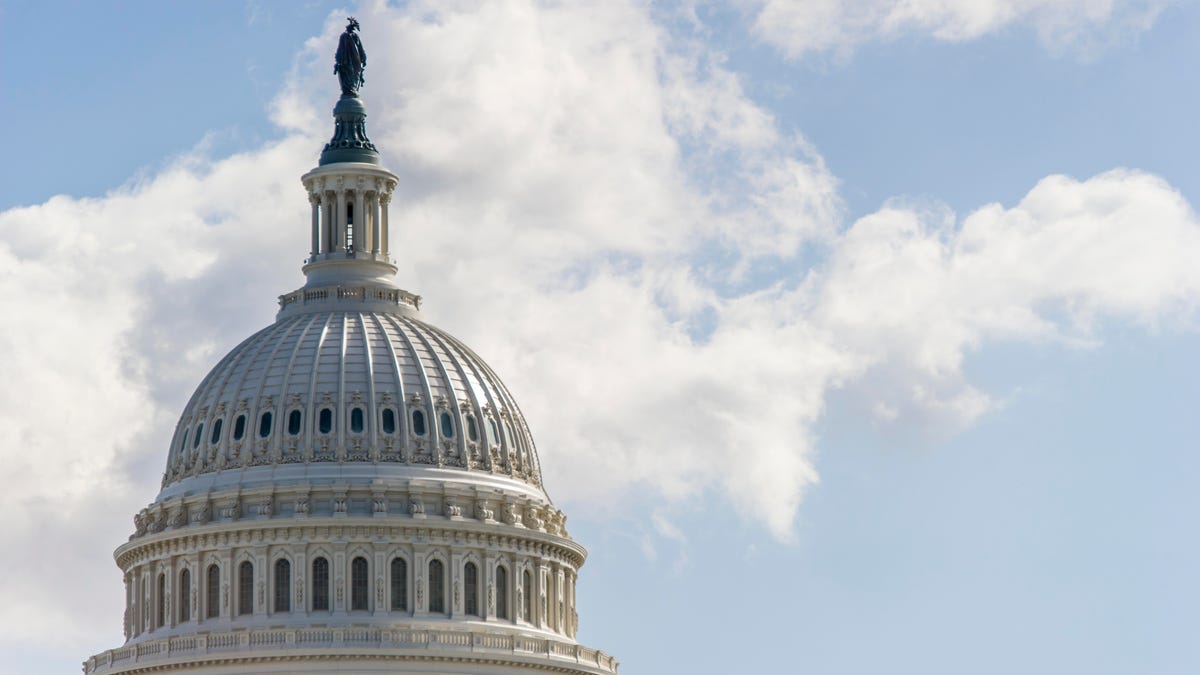Google, Apple, Amazon and Facebook face off with Congress this week
The hearings will be on antitrust and Facebook's upcoming Libra cryptocurrency, but they're really about holding Silicon Valley to account.

Lawmakers on Capitol Hill are amping up pressure on tech companies.
Tech's biggest giants will once again be in the congressional hot seat this week, facing down hearings on antitrust and Facebook's Libra currency. In each case, though, the real question they'll confront is whether the US government should amp up its efforts to regulate them.
The hearings, held on Capitol Hill, have academic titles like "Online Platforms and Market Power, Part 2: Innovation and Entrepreneurship." That one, scheduled for Tuesday with the House Committee on the Judiciary, is to discuss antitrust issues with representatives from Amazon , Apple , Facebook and Google . The Senate Banking Committee will meanwhile hold a hearing called "Examining Facebook's Proposed Digital Currency and Data Privacy Considerations" to discuss the social network's Libra currency that the company hopes will change the way we make everyday purchases.
These hearings represent the latest in the ever-evolving dance between tech giants and lawmakers on Capitol Hill -- one that's quickly becoming an issue in the upcoming US presidential race. At stake is how government will regulate the tech industry , which has grown to be one of the world's largest and most powerful groups. Amazon and Apple are both worth nearly a trillion dollars, while Google and Facebook draw audiences that number into the billions.
For decades, scrappy Silicon Valley companies represented the new American dream, creating multibillion dollar companies off a genius aha moment. But the last couple of years have brought a steady stream of scandal and corporate malfeasance.
Facebook and Google have struggled with questions around privacy , free speech and election interference. Amazon and Apple meanwhile have grown so large and powerful, some lawmakers say they've become monopolies that need to be split up.
Regulators have already begun handing down record fines to the companies, including an EU judgment against Google for $5 billion last year, and the US Federal Trade Commission's expected $5 billion fine against Facebook this year.
That hasn't been enough to satiate many politicians though. President Donald Trump, who's used social media to upend the political world, has become one of the industry's loudest critics.
"This new technology is so powerful and so important, and it has to be used fairly," he said while speaking at a social media summit with conservative allies last week.
Facebook and Google didn't respond to requests for comment. Amazon and Apple representatives referred to previous statements arguing against concerns about anticompetitive practices.
No clear answer
The proposed solutions are as varied as the complaints tech companies face. Some, like Virginia's Democratic Sen. Mark Warner, have proposed laws on data portability and privacy, as well as a bill to force more transparency in regard to political ads. Others, like Republican Sen. Ted Cruz of Texas, have called hearings on censorship, and argued that tech companies need to be regulated differently because of concerns over perceived political bias.
Then there's Facebook's Libra cryptocurrency , which adds a new wrinkle for lawmakers to consider. Trump has already called out Libra and Bitcoin, saying their value "is highly volatile and based on thin air."
The myriad of issues is why, despite all this scandal and pressure, lawmakers have come to little agreement about how to move forward.
All they can seem to agree on so far is that something needs to be done.
"Today's big tech companies have [too much power over] our economy, our society and our democracy," Massachusetts Sen. Elizabeth Warren, a democrat and presidential candidate, wrote in March.
"By almost any measure the giant tech companies are larger and more powerful than Standard Oil was when it was broken up, they're larger and more powerful than AT&T when it was broken up," said Cruz during a hearing in April.
The big question
This week's hearings will be particularly thorny because they'll each touch on concerns over tech's perceived monopolistic actions.
Warren has argued, for example, that tech companies have grown so large that competition has become harder, tilting "the playing field against everyone else." Trump and Cruz, meanwhile, have focused on free speech concerns.
But neither of those arguments touch on what the government historically looks toward on antitrust issues: pricing that hurts consumers.
Amazon is criticized for often undercutting competition on price, while prices on Apple's App Store are similar to those on Google's competing platform. Facebook and Google meanwhile, are known primarily for offering free services like Instagram, WhatsApp messenger and Google Maps .
"What's the antitrust violation when something is free?" said David Balto, a former policy director for the Federal Trade Commission. He worked on the team that accused Microsoft of monopolistic practices two decades ago (a judge agreed, but the company escaped a breakup).
That hasn't stopped the chorus against tech from growing louder. Nearly every one of the more than two dozen major Democratic presidential candidates has said tech needs to be scrutinized more closely.
That includes Vermont Sen. Bernie Sanders, who told The New York Times earlier this year, "Public policy is so far behind the explosion of technology, that it is really one of the weaknesses of where we are right now as a country."

